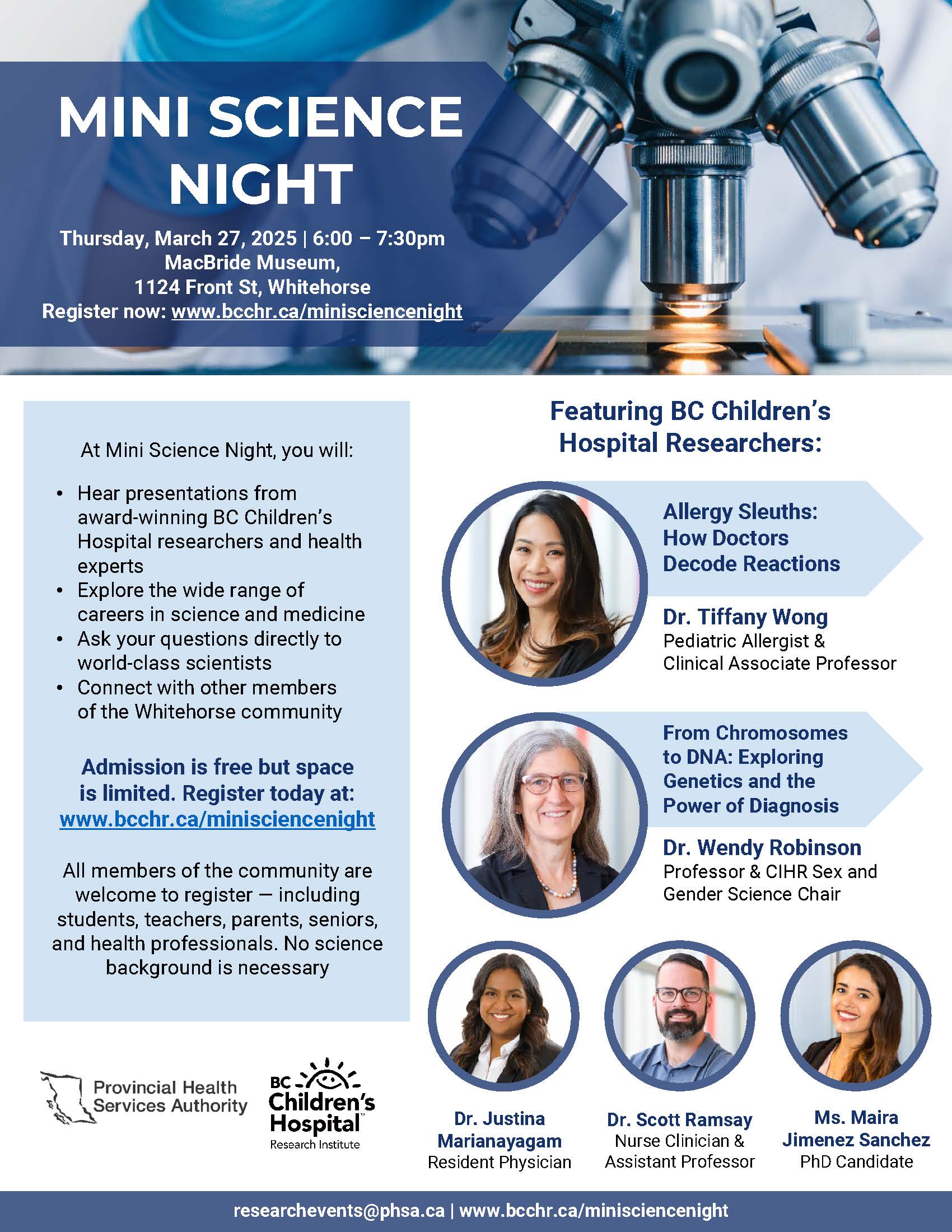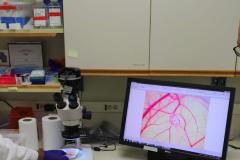Registration for Mini Science Night is now open but space is limited to the first 50 registered participants. Click here to register now!
Join us as we explore the newest discoveries and innovations in health research.
When & Where
Date: Thursday, March 27, 2025
Time: 6:00 - 7:30 pm
Location: MacBride Museum, 1124 Front St, Whitehorse, Yukon
At Mini Science Night, you can expect to:
- Hear presentations from award-winning BC Children’s Hospital researchers and health experts
- Explore the wide range of careers in science and medicine
- Ask your questions directly to world-class scientists
- Connect with other members of the Whitehorse community
Curriculum
- 6:00 pm - Registration & Refreshments
-
Mini Science Night is not a nut-free event. We cannot guarantee that there will be no cross-contamination by catering. Participants with any food allergies or dietary restrictions are asked to bring a snack. We apologize for any inconvenience.
- 6:30 pm - Allergy Sleuths: How Doctors Decode Reactions
-
What is an allergy? How does it differ from sensitivities or intolerances? Discover how doctors break it all down! Learn how key symptoms serve as clues in solving the allergy mystery and uncovering what’s really going on in the body. Presented by Dr. Tiffany Wong
- 6:50 pm - From Chromosomes to DNA: Exploring Genetics and the Power of Diagnosis
-
Explore how new technologies are revolutionizing our understanding of genetics and disease diagnosis. Learn how genomic analysis is transforming the way we approach health, and what it can—and can't—reveal about our risk for disease. Presented by Dr. Wendy Robinson
- 7:10 pm - Question & Answer Period
-
Participant questions for Dr. Tiffany Wong & Dr. Wendy Robinson.
- 7:30 pm - Closing Remarks
-
Do you have questions about a career in health sciences? Are you looking to discover the latest in research advancements?
Participants will at dismissed at 7:30 pm. After dismissal, Dr. Tiffany Wong, Dr. Wendy Robinson, Dr. Justina Marianayagam, Dr. Scott Ramsay and Maira Jimenez Sanchez will be available to network one-on-one with anyone interested. Bring your questions!
Interested in Participating?
Admission is free but space is limited to the first 50 participants who register.
Registration is open to everyone in the community. This includes students, teachers, parents, seniors and local healthcare professionals. No science knowledge is necessary.
> > > Click here to register now
Do you have additional questions? Contact researchevents@phsa.ca.





